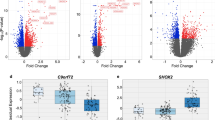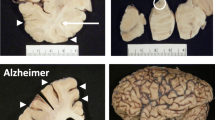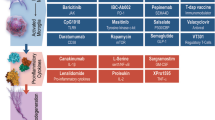Abstract
The commonest genetic cause of amyotrophic lateral sclerosis (ALS) and frontotemporal dementia (FTD) is a large hexanucleotide expansion within the non-coding region of the C9orf72 gene. The pathogenic mechanisms of the mutation seem toxic gain of functions, while haploinsufficiency alone appears insufficient to cause neurodegeneration. C9orf72−/− mice rather develop features of autoimmunity. Immune-mediated dysfunctions are involved in the pathogenesis of ALS and FTD and high prevalence of autoimmune disease has recently been observed in C9orf72 expansion-positive patients. Since intermediate repeat expansions result in decreased transcription of the gene, we explored the hypothesis that C9orf72 intermediate alleles could be a genetic risk for autoimmune conditions. We genotyped 69 systemic lupus erythematosus (SLE) and 77 rheumatoid arthritis (RA) patients, with 68 expansion-negative ALS patients, as control. A cut-off of ≥ 9 and ≤ 30 hexanucleotide units was chosen to define intermediate-length expansions. In the SLE and SLE + RA cohorts, both the number of patients with intermediate expansions and the overall number of intermediate alleles were significantly higher than in controls (23.2% vs. 7.4%, p = 0.020; 13.8% vs. 3.7%, p = 0.006, and 19.9% vs. 7.4%, p = 0.033, 11% vs. 3.7%, p = 0.021, respectively) and discernible although non-significant differences were found for the RA only cohort. Three SLE patients had intermediate-length expansions on both alleles, two of them harboring sequence variations within the hexanucleotide downstream region. However, no peculiar clinical features associated with the intermediate expansion were identified. Our results suggest that C9orf72 intermediate alleles could be associated with systemic autoimmune diseases, indicating a role of C9orf72 in immunity regulation.


Similar content being viewed by others
References
Aletaha, D., Neogi, T., Silman, A. J., Funovits, J., Felson, D. T., Bingham, C. O., et al. (2010). Rheumatoid arthritis classification criteria: An American College of Rheumatology/European League against rheumatism collaborative initiative. Arthritis & Rheumatism, 62(9), 2569–2581. https://doi.org/10.1002/art.27584.
Atanasio, A., Decman, V., White, D., Ramos, M., Ikiz, B., Lee, H. C., et al. (2016). C9orf72 ablation causes immune dysregulation characterized by leukocyte expansion, autoantibody production, and glomerulonephropathy in mice. Scientific Reports, 6, 23204. https://doi.org/10.1038/srep23204.
Beck, J., Poulter, M., Hensman, D., Rohrer, J. D., Mahoney, C. J., Adamson, G., et al. (2013). Large C9orf72 hexanucleotide repeat expansions are seen in multiple neurodegenerative syndromes and are more frequent than expected in the UK population. American Journal of Human Genetics, 92(3), 345–353. https://doi.org/10.1016/j.ajhg.2013.01.011.
Biasiotto, G., Archetti, S., Di Lorenzo, D., Merola, F., Paiardi, G., Borroni, B., et al. (2017). A PCR-based protocol to accurately size C9orf72 intermediate-length alleles. Molecular and Cellular Probes, 32, 60–64. https://doi.org/10.1016/j.mcp.2016.10.008.
Biasiotto, G., Di Lorenzo, D., Archetti, S., & Zanella, I. (2016). Iron and neurodegeneration: Is ferritinophagy the link? Molecular Neurobiology, 53(8), 5542–5574. https://doi.org/10.1007/s12035-015-9473-y.
Biasiotto, G., & Zanella, I. (2019). The effect of C9orf72 intermediate repeat expansions in neurodegenerative and autoimmune diseases. Multiple Sclerosis and Related Disorders, 27, 42–43. https://doi.org/10.1016/j.msard.2018.10.004.
Broce, I., Karch, C. M., Wen, N., Fan, C. C., Wang, Y., Tan, C. H., et al. (2018). Immune-related genetic enrichment in frontotemporal dementia: An analysis of genome-wide association studies. PLoS Medicine, 15(1), e1002504. https://doi.org/10.1371/journal.pmed.1002504.
Burberry, A., Suzuki, N., Wang, J. Y., Moccia, R., Mordes, D. A., Stewart, M. H., et al. (2016). Loss-of-function mutations in the C9ORF72 mouse ortholog cause fatal autoimmune disease. Science Translational Medicine, 8(347), 347ra93. https://doi.org/10.1126/scitranslmed.aaf6038.
Byrne, S., Elamin, M., Bede, P., Shatunov, A., Walsh, C., Corr, B., et al. (2012). Cognitive and clinical characteristics of patients with amyotrophic lateral sclerosis carrying a C9orf72 repeat expansion: A population-based cohort study. Lancet Neurology, 11(3), 232–240. https://doi.org/10.1016/S1474-4422(12)70014-5.
Byrne, S., Heverin, M., Elamin, M., Walsh, C., & Hardiman, O. (2014). Intermediate repeat expansion length in C9orf72 may be pathological in amyotrophic lateral sclerosis. Amyotrophic Lateral Sclerosis and Frontotemporal Degeneration, 15(1–2), 148–150. https://doi.org/10.3109/21678421.2013.838586.
Cacace, R., Van Cauwenberghe, C., Bettens, K., Gijselinck, I., van der Zee, J., Engelborghs, S., et al. (2013). C9orf72 G4C2 repeat expansions in Alzheimer’s disease and mild cognitive impairment. Neurobiology of Aging, 34(6), 1712.e1–1712.e7. https://doi.org/10.1016/j.neurobiolaging.2012.12.019.
Cannas, A., Solla, P., Borghero, G., Floris, G. L., Chio, A., Mascia, M. M., et al. (2015). C9ORF72 intermediate repeat expansion in patients affected by atypical parkinsonian syndromes or Parkinson’s disease complicated by psychosis or dementia in a Sardinian population. Journal of Neurology, 262(11), 2498–2503. https://doi.org/10.1007/s00415-015-7873-6.
Corrado, L., Tiloca, C., Locci, C., Bagarotti, A., Hamzeiy, H., Colombrita, C., et al. (2018). Characterization of the c9orf72 GC-rich low complexity sequence in two cohorts of Italian and Turkish ALS cases. Amyotrophic Lateral Sclerosis and Frontotemporal Degeneration, 19(5–6), 426–431. https://doi.org/10.1080/21678421.2018.1440407.
Curtis, A. F., Masellis, M., Hsiung, G. R., Moineddin, R., Zhang, K., Au, B., et al. (2017). Sex differences in the prevalence of genetic mutations in FTD and ALS: A meta-analysis. Neurology, 89(15), 1633–1642. https://doi.org/10.1212/WNL.0000000000004494.
DeJesus-Hernandez, M., Mackenzie, I. R., Boeve, B. F., Boxer, A. L., Baker, M., Rutherford, N. J., et al. (2011). Expanded GGGGCC hexanucleotide repeat in noncoding region of C9ORF72 causes chromosome 9p-linked FTD and ALS. Neuron, 72(2), 245–256. https://doi.org/10.1016/j.neuron.2011.09.011.
Gijselinck, I., Van Mossevelde, S., van der Zee, J., Sieben, A., Engelborghs, S., De Bleecker, J., et al. (2016). The C9orf72 repeat size correlates with onset age of disease, DNA methylation and transcriptional downregulation of the promoter. Molecular Psychiatry, 21(8), 1112–1124. https://doi.org/10.1038/mp.2015.159.
Gómez-Tortosa, E., Gallego, J., Guerrero-López, R., Marcos, A., Gil-Neciga, E., Sainz, M. J. et al. (2013). C9ORF72 hexanucleotide expansions of 20–22 repeats are associated with frontotemporal deterioration. Neurology, 80(4), 366–370. https://doi.org/10.1212/WNL.0b013e31827f08ea.
Haeusler, A. R., Donnelly, C. J., Periz, G., Simko, E. A., Shaw, P. G., Kim, M. S., et al. (2014). C9orf72 nucleotide repeat structures initiate molecular cascades of disease. Nature, 507(7491), 195–200. https://doi.org/10.1038/nature13124.
Katisko, K., Solje, E., Koivisto, A. M., Krüger, J., Kinnunen, T., Hartikainen, P., et al. (2018). Prevalence of immunological diseases in a Finnish frontotemporal lobar degeneration cohort with the C9orf72 repeat expansion carriers and non-carriers. Journal of Neuroimmunology, 15(321), 29–35. https://doi.org/10.1016/j.jneuroim.2018.05.011.
Lall, D., & Baloh, R. H. (2017). Microglia and C9orf72 in neuroinflammation and ALS and frontotemporal dementia. The Journal of Clinical Investigation, 127(9), 3250–3258. https://doi.org/10.1172/JCI90607.
Liu, C., Batliwalla, F., Li, W., Lee, A., Roubenoff, R., Beckman, E., et al. (2008). Genome-wide association scan identifies candidate polymorphisms associated with differential response to anti-TNF treatment in rheumatoid arthritis. Molecular Medicine, 14(9–10), 575–581. https://doi.org/10.2119/2008-00056.Liu.
Lozano, R., Rosero, C. A., & Hagerman, R. J. (2014). Fragile X spectrum disorders. Intractable & Rare Disease Research, 3(4), 134–146. https://doi.org/10.5582/irdr.2014.01022.
Miller, Z. A., Rankin, K. P., Graff-Radford, N. R., Takada, L. T., Sturm, V. E., Cleveland, C. M., et al. (2013). TDP-43 frontotemporal lobar degeneration and autoimmune disease. Journal of Neurology Neurosurgery & Psychiatry, 84(9), 956–962. https://doi.org/10.1136/jnnp-2013-304936.
Miller, Z. A., Sturm, V. E., Camsari, G. B., Karydas, A., Yokoyama, J. S., Grinberg, L. T., et al. (2016). Increased prevalence of autoimmune disease within C9 and FTD/MND cohorts: Completing the picture. Neurology Neuroimmunology & Neuroinflammation, 3(6), e301. https://doi.org/10.1212/NXI.0000000000000301.
Ng, A. S. L., & Tan, E. K. (2017) Intermediate C9orf72 alleles in neurological disorders: Does size really matter? Journal of Medical Genetics, 54, 591–597. https://doi.org/10.1136/jmedgenet-2017-104752.
Nordin, A., Akimoto, C., Wuolikainen, A., Alstermark, H., Forsberg, K., Baumann, P., et al. (2017). Sequence variations in C9orf72 downstream of the hexanucleotide repeat region and its effect on repeat-primed PCR interpretation: A large multinational screening study. Amyotrophic Lateral Sclerosis and Frontotemporal Degeneration, 18(34), 256–264. https://doi.org/10.1080/21678421.2016.1262423.
Nuytemans, K., Bademci, G., Kohli, M. M., Beecham, G. W., Wang, L., Young, J. I., et al. (2013). C9ORF72 intermediate repeat copies are a significant risk factor for Parkinson disease. Annals of Human Genetics, 77(5), 351–363. https://doi.org/10.1111/ahg.12033.
O’Rourke, J. G., Bogdanik, L., Yáñez, A., Lall, D., Wolf, A. J., Muhammad, A. K., et al. (2016). C9orf72 is required for proper macrophage and microglial function in mice. Science, 351(6279), 1324–1329. https://doi.org/10.1126/science.aaf1064.
Petri, M., Orbai, A. M., Alarcón, G. S., Gordon, C., Merrill, J. T., Fortin, P. R., et al. (2012). Derivation and validation of the Systemic Lupus International Collaborating Clinics classification criteria for systemic lupus erythematosus. Arthritis & Rheumatism, 64(8), 2677–2686. https://doi.org/10.1002/art.34473.
Renton, A. E., Majounie, E., Waite, A., Siman-Sanchez, J., Rollinson, S., Gibbs, J. R., et al. (2011). A hexanucleotide repeat expansion in C9ORF72 is the cause of chromosome 9p21-linked ALS-FTD. Neuron, 72(2), 257–268. https://doi.org/10.1016/j.neuron.2011.09.010.
Rizzu, P., Blauwendraat, C., Heetveld, S., Lynes, E. M., Castillo-Lizardo, M., Dhingra, A., et al. (2016). C9orf72 is differentially expressed in the central nervous system and myeloid cells and consistently reduced in C9orf72, MAPT and GRN mutation carriers. Acta Neuropathologica Communication, 4(1), 37. https://doi.org/10.1186/s40478-016-0306-7.
Sabatelli, M., Conforti, F. L., Zollino, M., Mora, G., Monsurrò, M. R., Volanti, P., et al. (2012). C9ORF72 hexanucleotide repeat expansions in the Italian sporadic ALS population. Neurobiology of Aging, 33(8), 1848.e15–1848.e20. https://doi.org/10.1016/j.neurobiolaging.2012.02.011.
Semaka, A., & Hayden, M. R. (2014). Evidence-based genetic counselling implications for Huntington disease intermediate allele predictive test results. Clinical Genetics, 85(4), 303–311. https://doi.org/10.1111/cge.12324.
Tiloca, C., Sorosina, M., Esposito, F., Peroni, S., Colombrita, C., Ticozzi, N., et al. (2018). No C9orf72 repeat expansion in patients with primary progressive multiple sclerosis. Multiple Sclerosis and Related Disorders, 25, 192–195. https://doi.org/10.1016/j.msard.2018.07.047.
Van Mossevelde, S., van der Zee, J., Cruts, M., & Van Broeckhoven, C. (2017). Relationship between C9orf72 repeat size and clinical phenotype. Current Opinion in Genetics & Development, 44, 117–124. https://doi.org/10.1016/j.gde.2017.02.008.
Xi, Z., Rainero, I., Rubino, E., Pinessi, L., Bruni, A. C., Maletta, R. G., et al. (2014). Hypermethylation of the CpG-island near the C9orf72 G4C2-repeat expansion in FTLD patients. Human Molecular Genetics, 23(21), 5630–5637. https://doi.org/10.1093/hmg/ddu279.
Zhang, Y., Burberry, A., Wang, J. Y., Sandoe, J., Ghosh, S., Udeshi, N. D., et al. (2018). The C9orf72-interacting protein Smcr8 is a negative regulator of autoimmunity and lysosomal exocytosis. Genes & Development, 32(13–14), 929–943. https://doi.org/10.1101/gad.313932.118.
Acknowledgements
We wish to thank Mrs. Irene Bianchi for her precious technical assistance and all patients for taking part in the study. This work was supported by the University of Brescia (Fondi ex 60% to Isabella Zanella and Giorgio Biasiotto). Micaela Fredi was supported by a grant from the Italian Systemic Lupus Eryhtematosus Patients’ Association.
Author information
Authors and Affiliations
Corresponding author
Ethics declarations
Conflict of interest
On behalf of all authors, the corresponding author states that there is no conflict of interest.
Ethical Approval
This study was performed in accordance with the 1964 Declaration of Helsinki and its later amendments and was approved by the Ethic Committee of the Promoting Centre (reference no. 2918-Studio C9ORF72CTD).
Informed Consent
Written informed consent was obtained from all individual participants included in the study.
Additional information
Publisher’s Note
Springer Nature remains neutral with regard to jurisdictional claims in published maps and institutional affiliations.
Rights and permissions
About this article
Cite this article
Fredi, M., Cavazzana, I., Biasiotto, G. et al. C9orf72 Intermediate Alleles in Patients with Amyotrophic Lateral Sclerosis, Systemic Lupus Erythematosus, and Rheumatoid Arthritis. Neuromol Med 21, 150–159 (2019). https://doi.org/10.1007/s12017-019-08528-8
Received:
Accepted:
Published:
Issue Date:
DOI: https://doi.org/10.1007/s12017-019-08528-8




